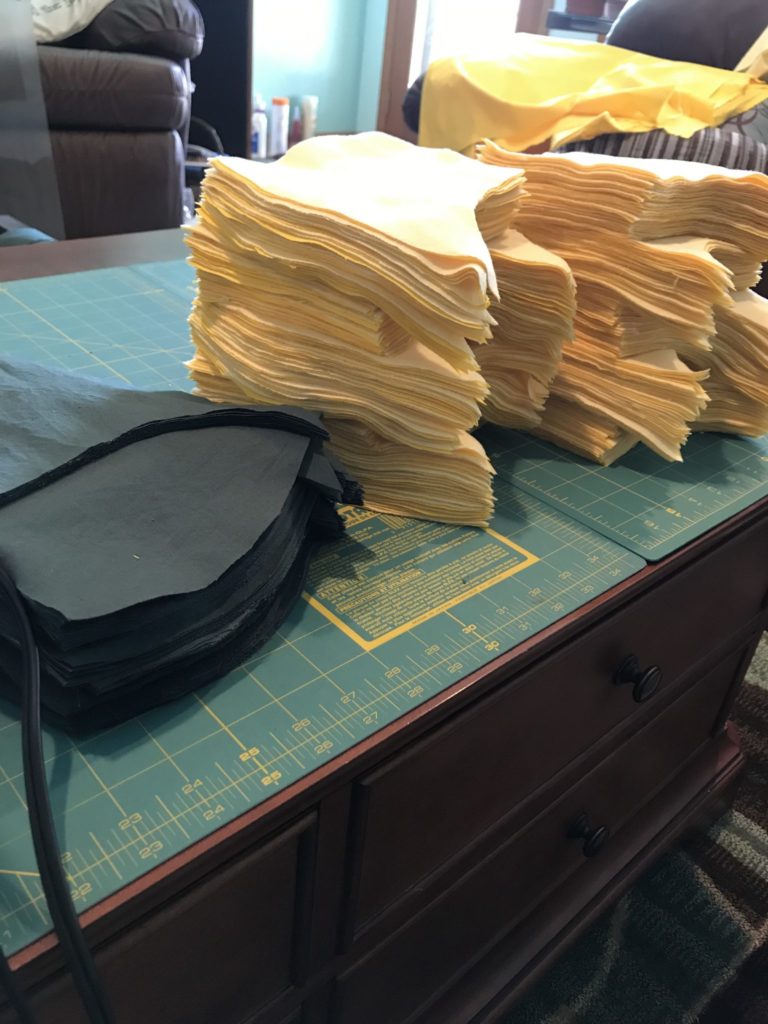
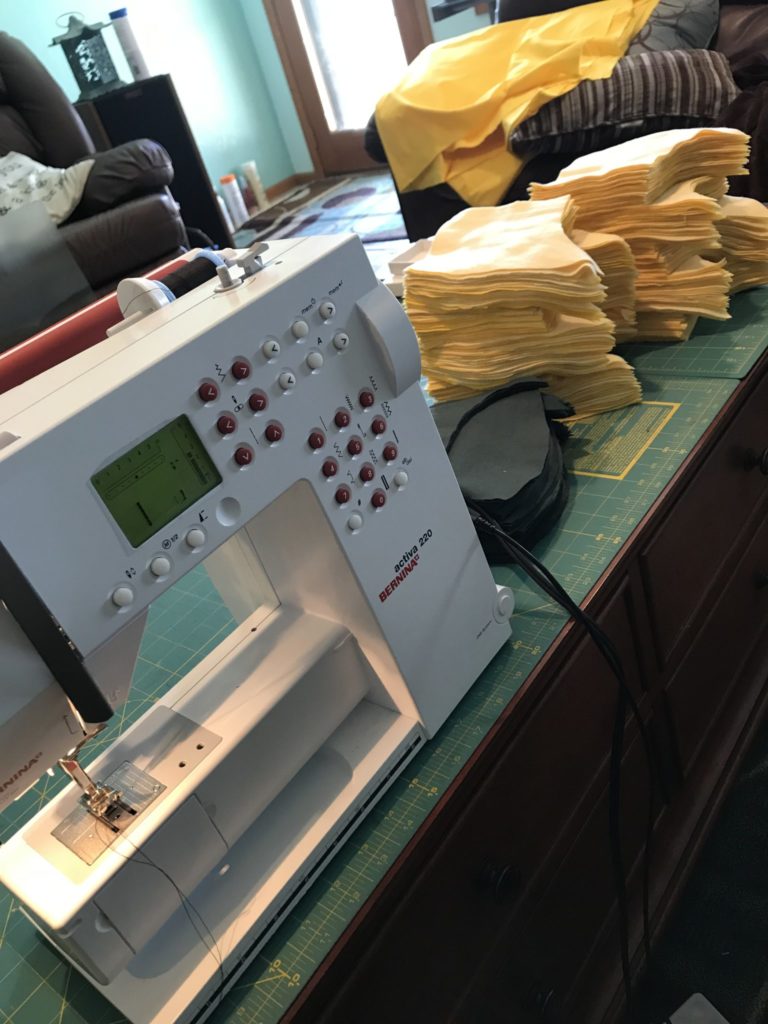
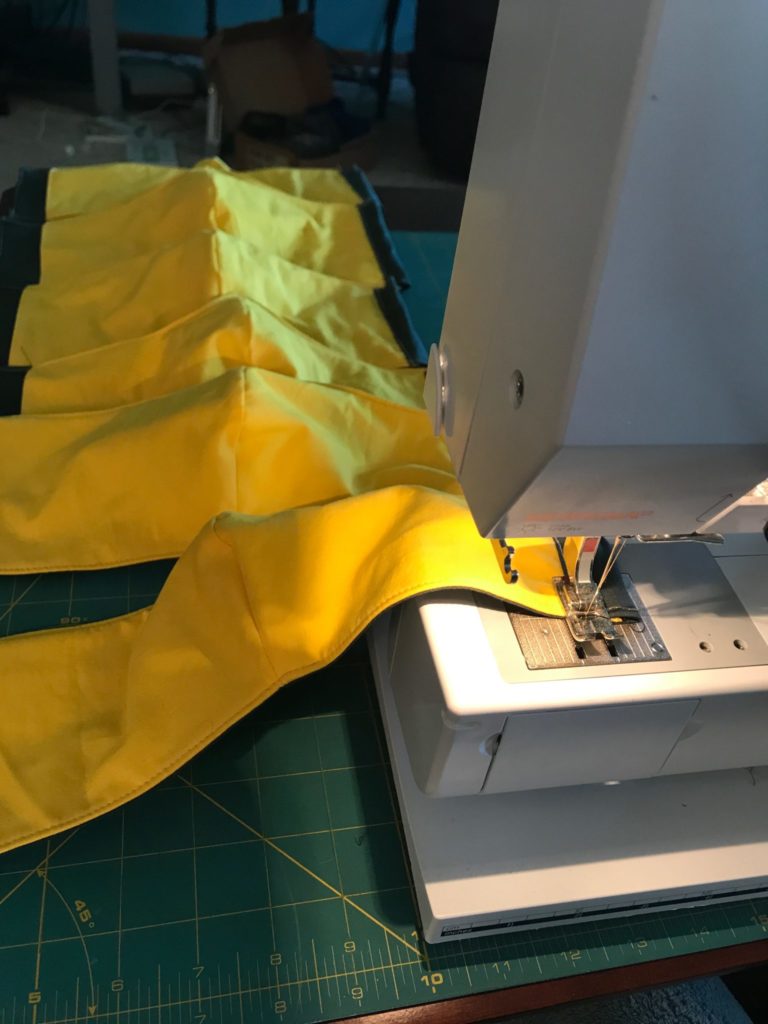
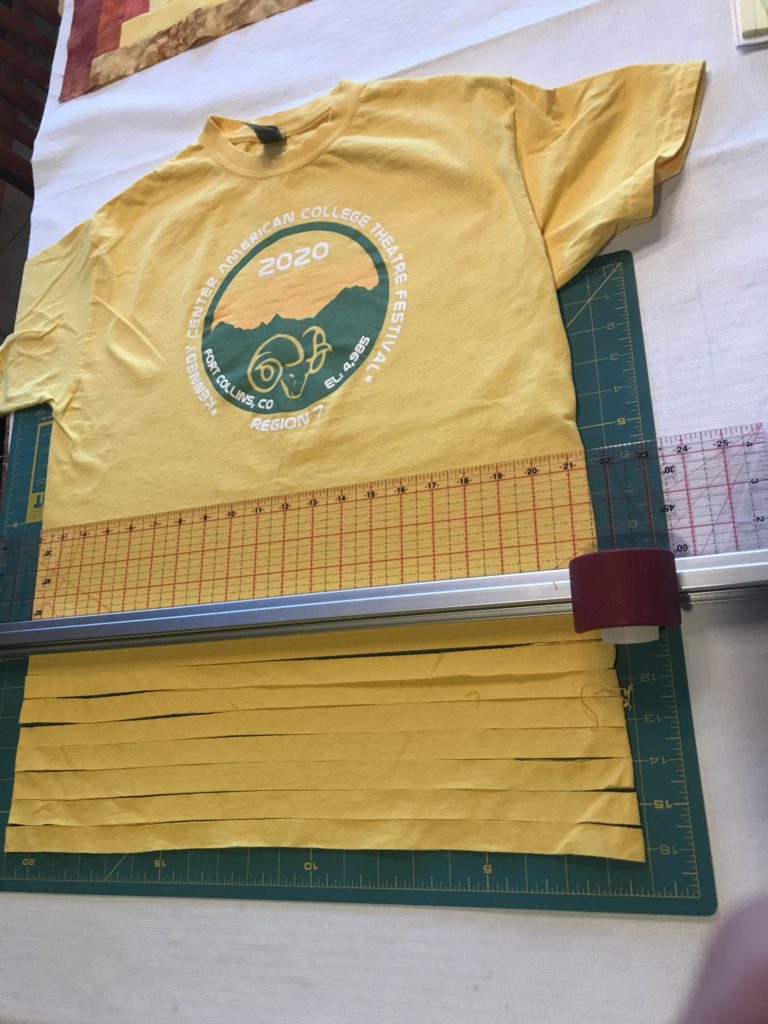
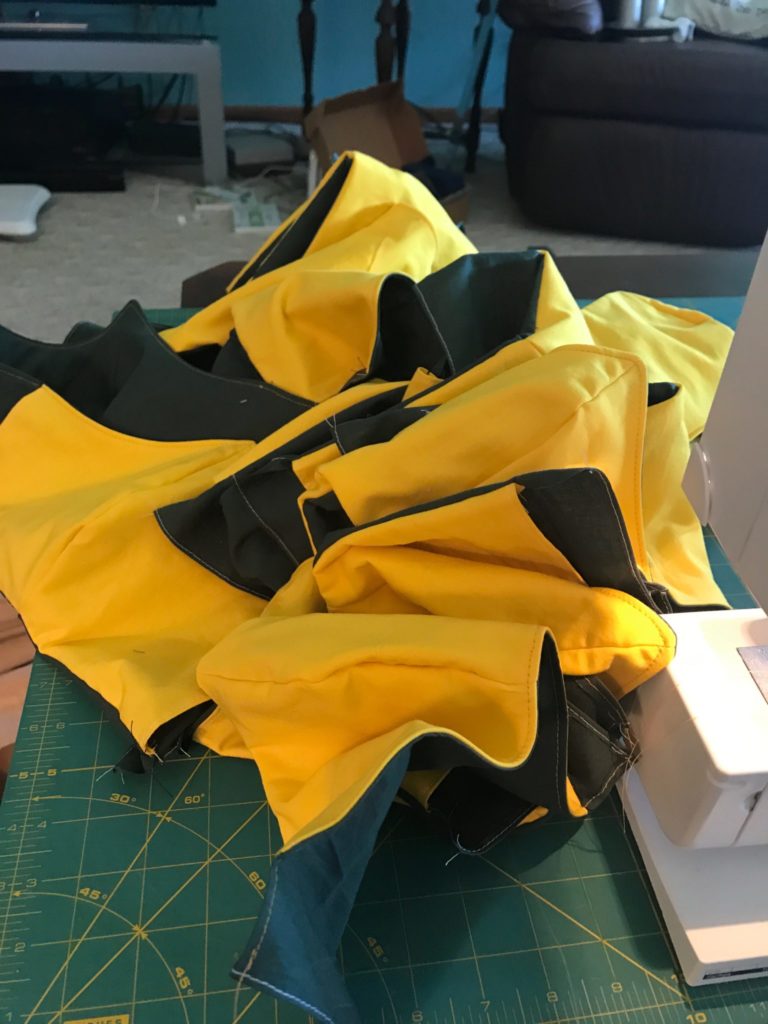
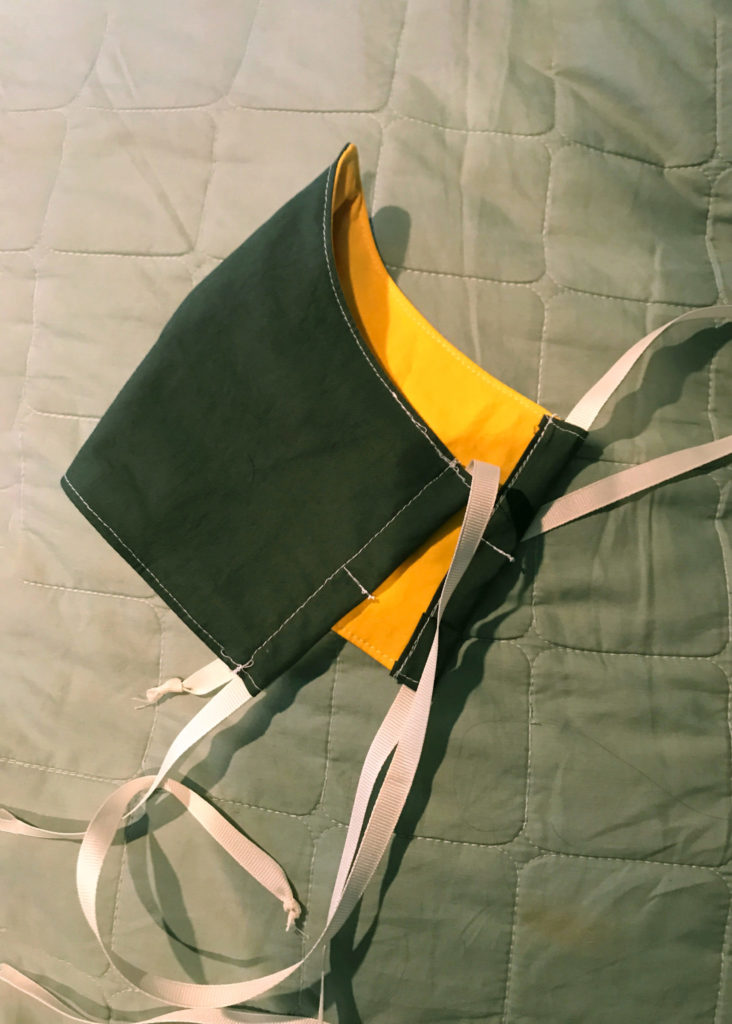
Masks sewn by Elise Kulovany, School of Music, Theatre, and Dance costume shop manager.
Rams take care of Rams
Sgt. Adam Smith of the CSU Police Department faced a significant need when Gov. Jared Polis urged Coloradans to wear masks in the fight against the spread of COVID-19. Thanks to the efforts of CSU Theatre’s costume shop, within a week of the announcement every essential member of CSUPD had two cloth masks.
The well-known campus motto “Rams take care of Rams” is being demonstrated by CSU Theatre students and staff. They have diligently created face masks for more than 1,000 essential employees across the CSU campus, starting with the police department.
The service project was launched by Dan Goble, director of the School of Music, Theatre, and Dance in partnership with University Operations, who wanted to provide meaningful work for CSU Theatre personnel whose daily responsibilities were put on hold due to the cancellation of several major theatre, opera, and dance productions this spring; however, their skills are specific and vital for this project.
Time-lapse of CSU theatre major Kalie Lanik sewing a mask.
“This project is so cool, and I’m so thankful and really excited that we’re doing it,” said Kalie Lanik, s senior theatre major. “I think it’s such a great idea because it provides the work-study students with an opportunity to keep working as well as provides members of our community with supplies.”
Lanik, who is sewing masks at home in Fort Collins, went on to explain how glad she is to be a part of the process. “I hope that the masks we make can help a lot of people who need them.”
The work must go on
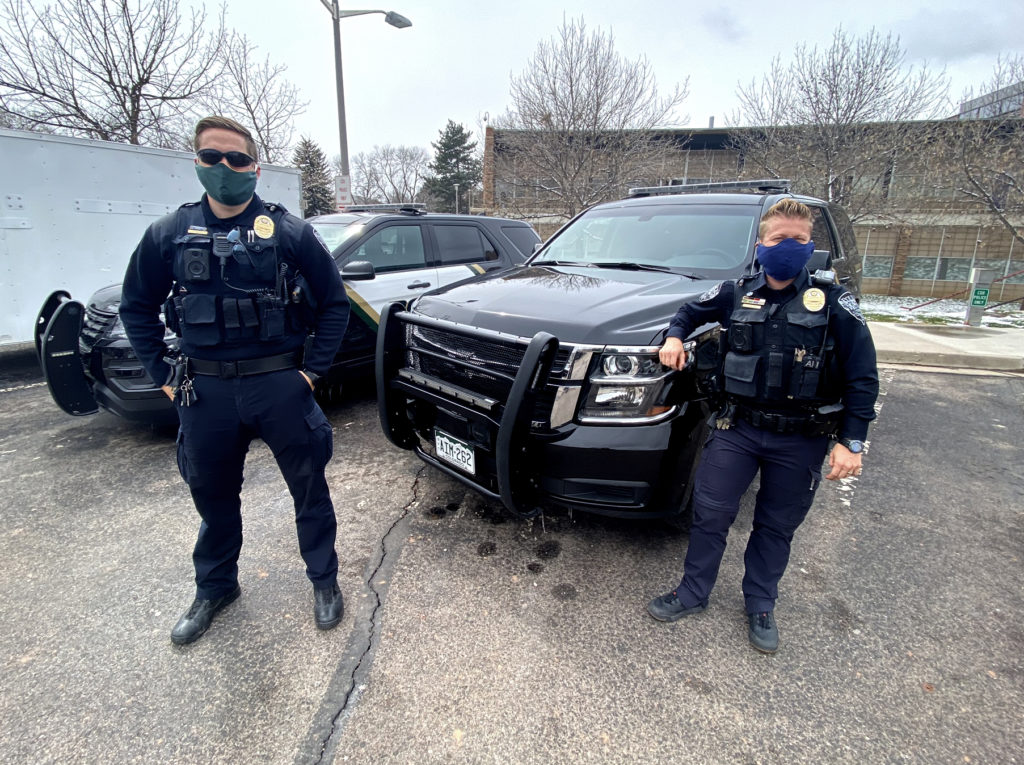
For Smith, the masks couldn’t have been timelier, as options for masks on the scale produced and delivered by the CSU Theatre costume shop were not available. Until the CSU Theatre contribution, CSUPD officers — from campus service officers, who are student employees continuing duties such as SafeWalk, to sworn officers — didn’t have a daily-wear solution.
“There were 105 masks received on the day I really needed them, and I distributed them to 40 people who are actively working in the community,” Smith explained. “If [CSU Theatre] hadn’t helped, we’d be behind the curve on being able to provide masks to our cops.”
The cloth masks were urgently needed to augment the department’s N95 masks and other personal protective equipment. Smith was looking at having to wait on traditional supply chains, or rely on the “moonlighting” of a couple of officers who were sewing masks at night.
“Our N95 supply is limited, and it is unreasonable to use medical-grade equipment when in contact with the general public at this time,” he added.
CSUPD is using masks based on the governor’s recommendation, but Smith believes in the science too.
“Fabric masks leverage our social distancing and help prevent the spread of the virus, especially in cases where we might have contact with people who may be asymptomatic, but could potentially be carriers or be at a higher risk,” he said.
For Smith, the teamwork on the project stood out.
“We identified our need, raised our hand, and the timeliness and response by the costume shop has been an instrumental solution,” he said. “It’s wonderful that our collaboration with campus partners resulted in this need being met.”
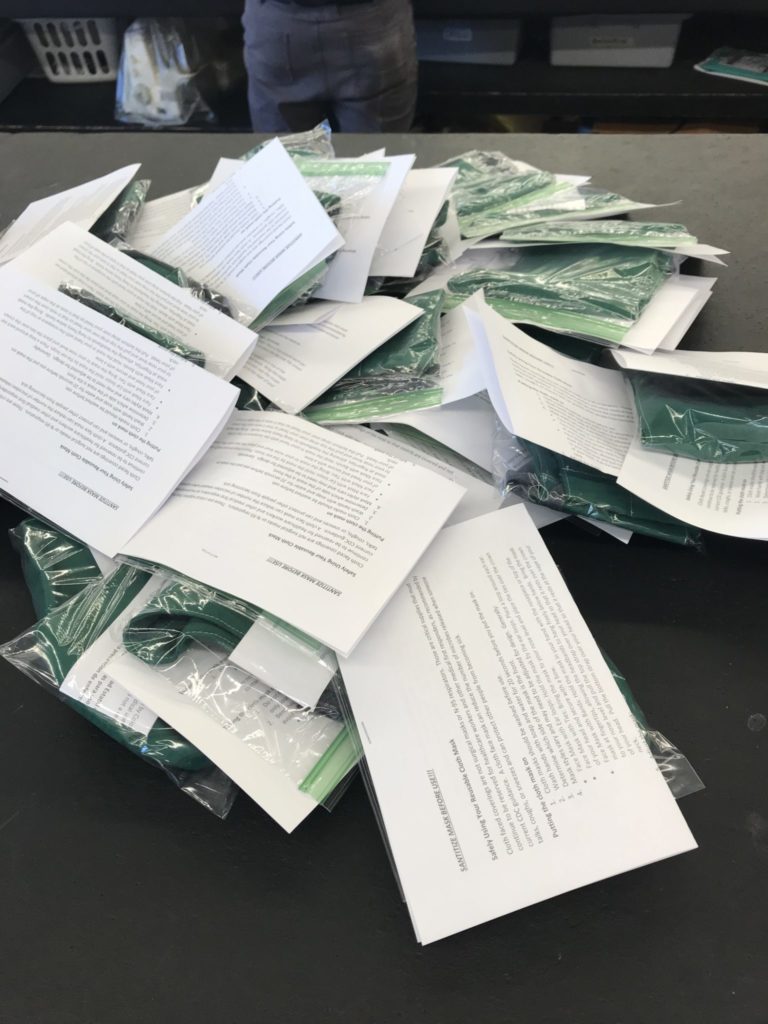
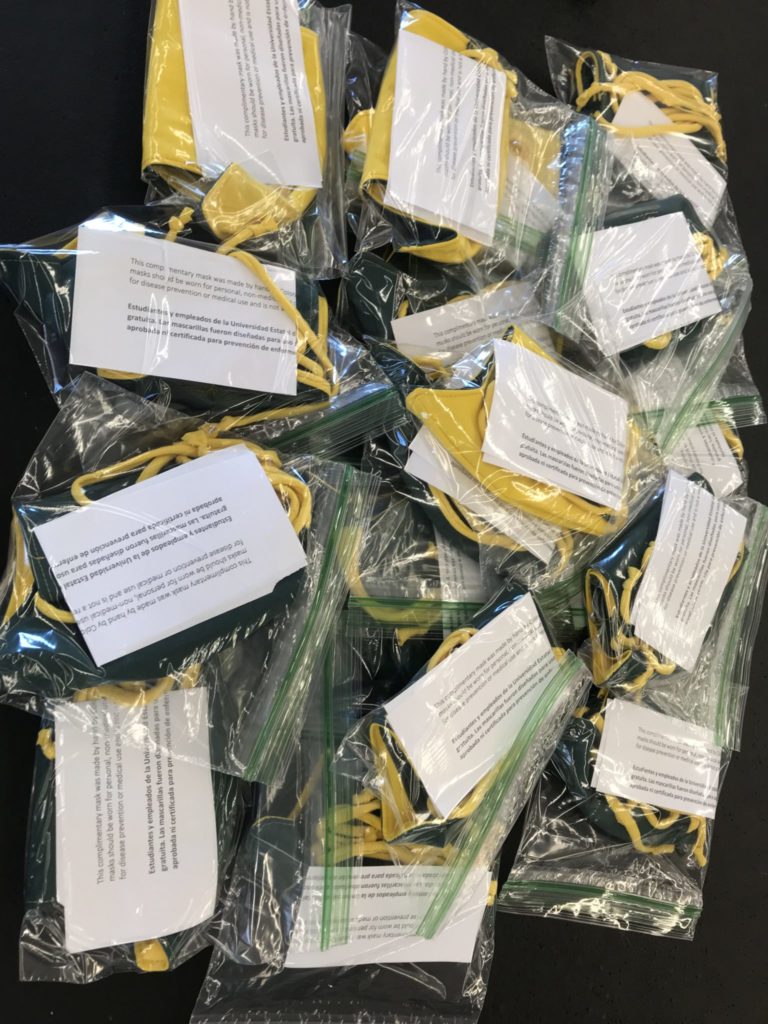
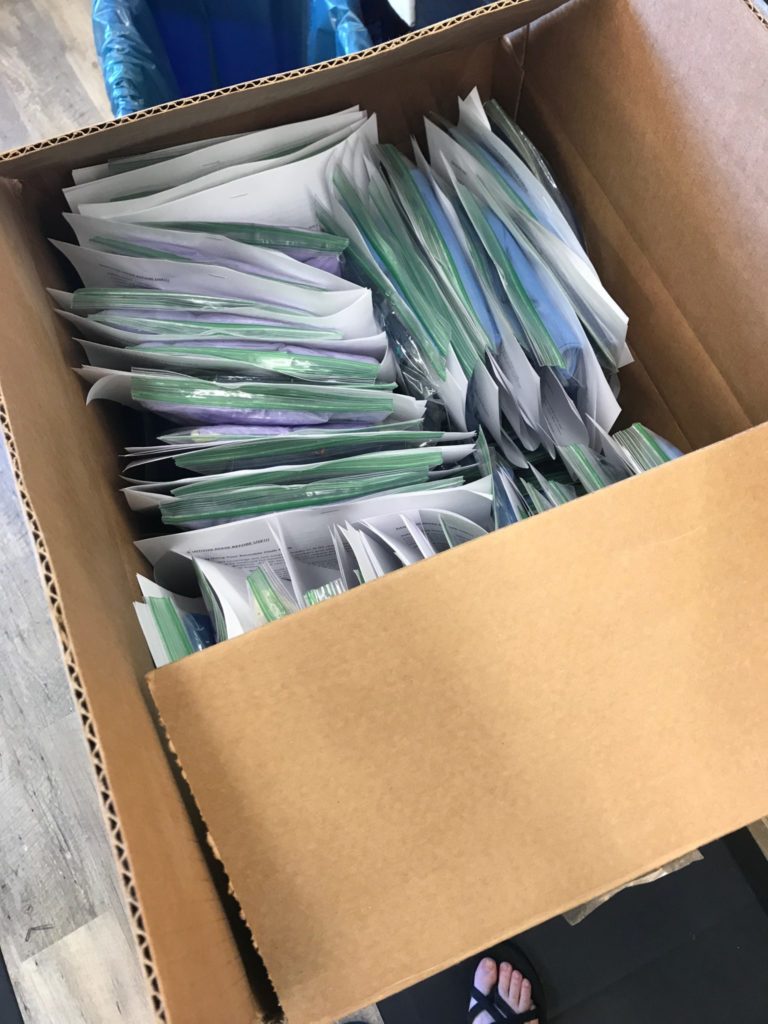
Masks packaged and delivered to CSUPD.
Creative construction
The mask production team, led by Costume Shop Manager Elise Kulovany, has been steadily cutting, pinning, and sewing for the last two weeks. Using instructions created with co-worker Becky Evans, the shop’s cutter-draper, and illustrated by lighting technician Cooper Adams, (who is also sewing from Denver), the instructions for the three-layer mask were distributed to the students at the end of March.
At the start, Evans was able to purchase more than 110 yards of cotton broadcloth and 60 yards of cotton flannel, which is enough fabric to produce about 500 masks. Kulovany and Evans are Facetiming, Zooming, and emailing with their team of students on a regular basis.
“We recognize they’re working odd hours with class schedules changing, so we’ve made ourselves available whenever we can,” said Kulovany. “Students are picking up and dropping off supplies remotely through a pre-determined drop off location managed by Steven Workman, production manager for the School of Music, Theatre, and Dance. Protecting students is always a high consideration with any work we do, and that especially doesn’t change now.”
As many making masks at home have discovered, there is a shortage of elastic, which is often used for ties, but that approach is expensive and not always hypoallergenic. As they say, “necessity is the mother of invention,” so Kulovany is repurposing leftover t-shirts from the Kennedy Center American College Theatre Festival region seven conference recently held at the University Center for the Arts, to make ties for the masks.
“For our mask ties, we’re using the leftover shirts from our KCACTF fundraiser,” Kulovany said. “They’re 100% cotton and have stretch because they’re knit. It’s a great repurposing of something we had in overflow, and we’re very thankful to our KCACTF regional chairs for letting us use these shirts for a necessary purpose.”
For Kulovany and Evans, being able to problem-solve and continue working with the students remotely is a wonderful opportunity. “Becky and I have made ourselves available to answer any questions they might have so that the learning isn’t stopping, it’s just altered. Our job is with the students. Their learning and growth is first and foremost; just as their job is to be students first.”
The team is expanding
With hundreds more masks to make, faculty and students from CSU’s Nancy Richardson Design Center are coming on board to aid in the endeavor.
Advice for making masks at home
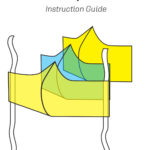
“At the end of this pandemic I hope others will see sewing as an essential skill and challenge themselves to learn this vital artform,” said Elise Kulovany, CSU costume shop manager. “We love teaching anyone who wants to learn, it’s our favorite part of the job. I’ve offered my knowledge to anyone who needs to remotely problem solve machine issues as well.”
Knowing that the cloth masks don’t meet the standard for hospitals, Kulovany’s advice for home stitchers is to start by connecting with organizations that might want cloth masks such as retirement communities, nursing homes, homeless shelters, food banks, and even neighbors.
As with any project she commits to, Kulovany urges people to do their research, explaining that there are multiple articles about a 2009 test reviewing the benefits of different materials. Be informed first, then act.
“Once you have done your due diligence and aren’t putting others at risk to collect supplies (get supplies without putting yourself and essential workers in harm’s way, then make sure to sanitize supplies), then, yes, please make a mask for your neighbor who needs comfort … for a homeless shelter who wants something they can hand out to those without access to masks … for a grocery store worker who is stocking shelves for hours and worried about catching the virus,” Kulovany said.
“I’m wearing my mask to protect you,” she added. “That’s the important thing to stress here. We’re all in this together.”
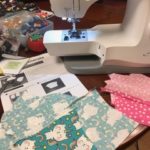
Franny Komperda is a wonderful example of Kuvolany’s approach.The CSU dance major works at a local animal hospital that needed masks for staff who continue serving patients.
“I was the only one who knew how to use a sewing machine, thanks to the costume construction class [I took] with Elise a few years back,” Komperda explained, adding that her masks are modified to include an opening for inserting a removable filter. “[Elise] was super pumped to see I’d been using my skills!”
“We’re trying to get automation involved so that we can mass-cut the fabric,” said Kulovany, adding that she is very grateful to start collaborating with Paul Callahan, fabrication labs coordinator, and a few of his design students, at the design center. “With the next request of 1,000 masks, we wouldn’t be able to accommodate that in any kind of quick manner.”
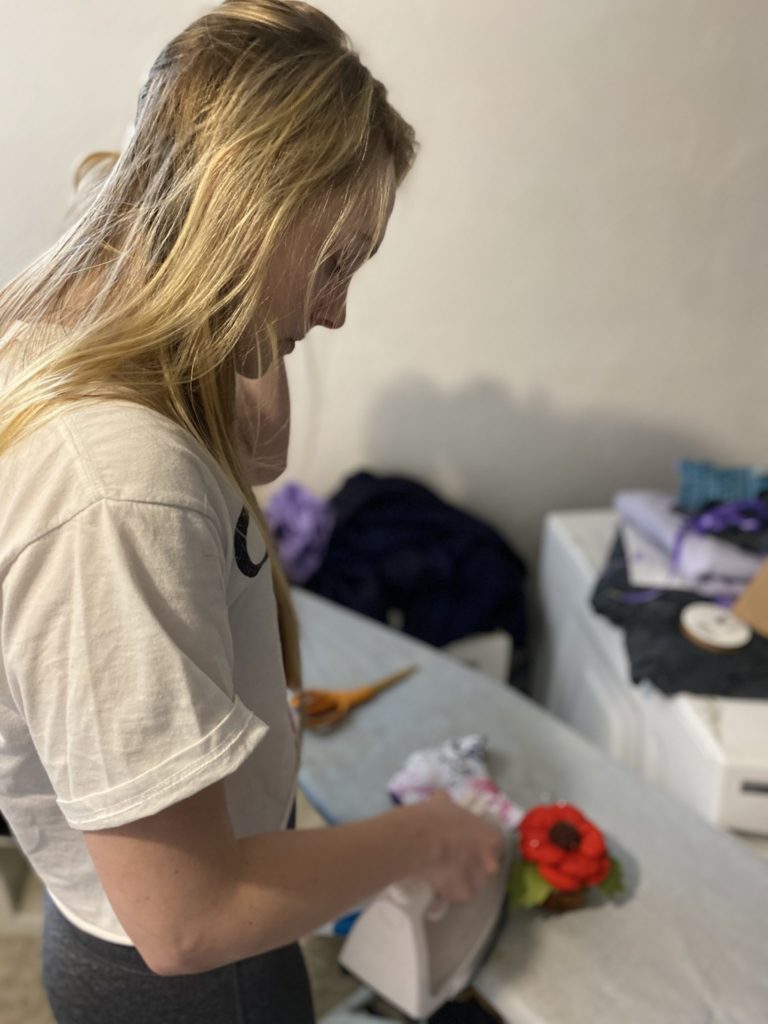
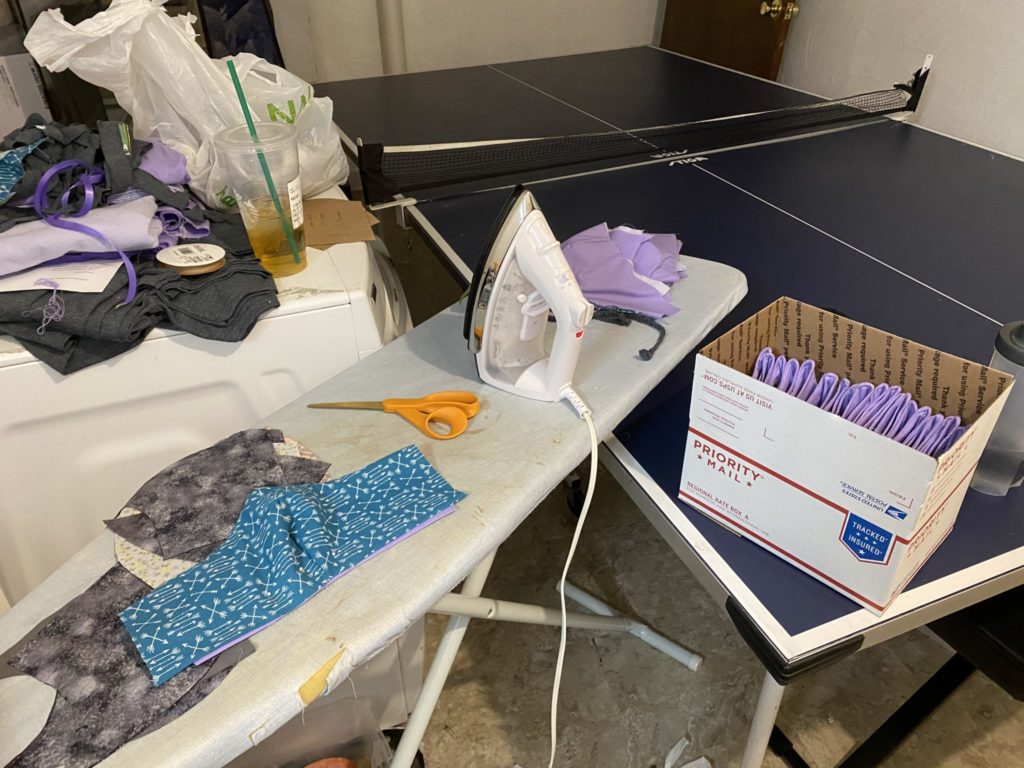
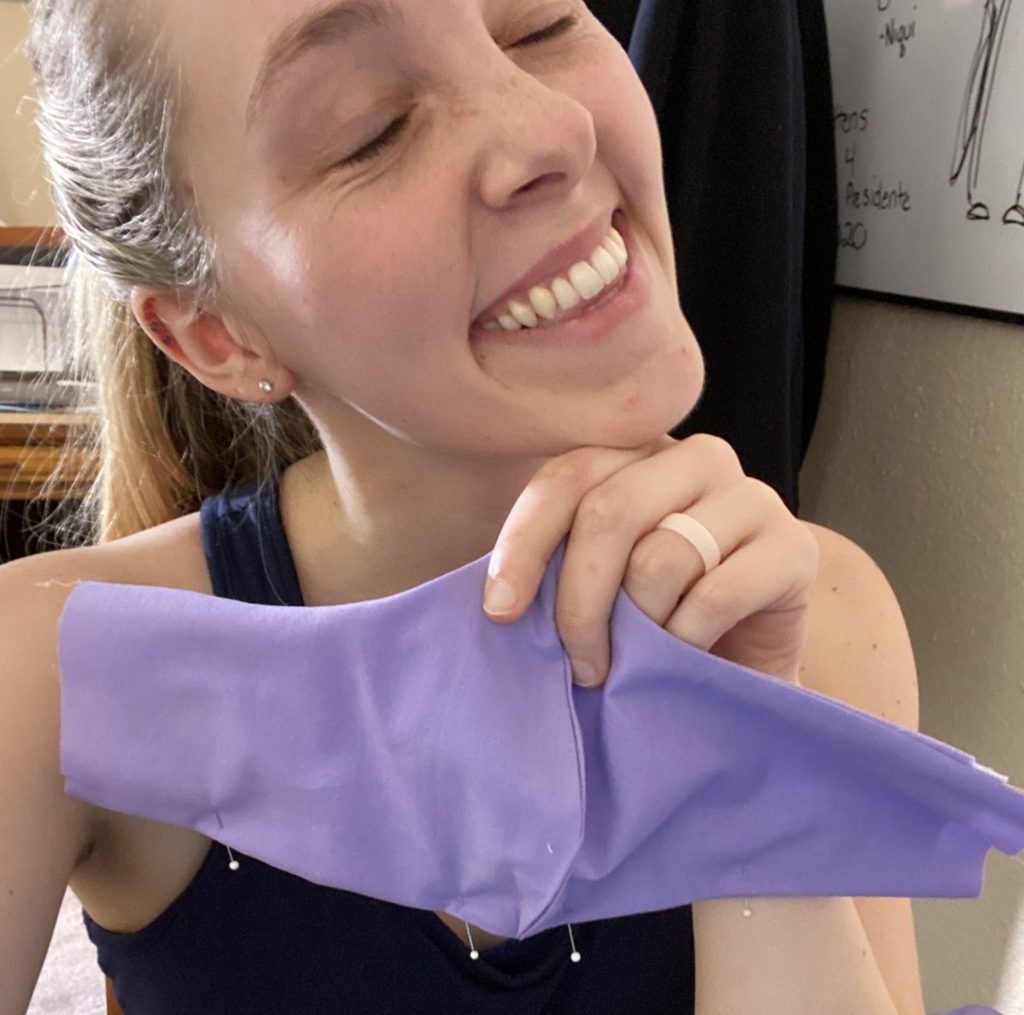
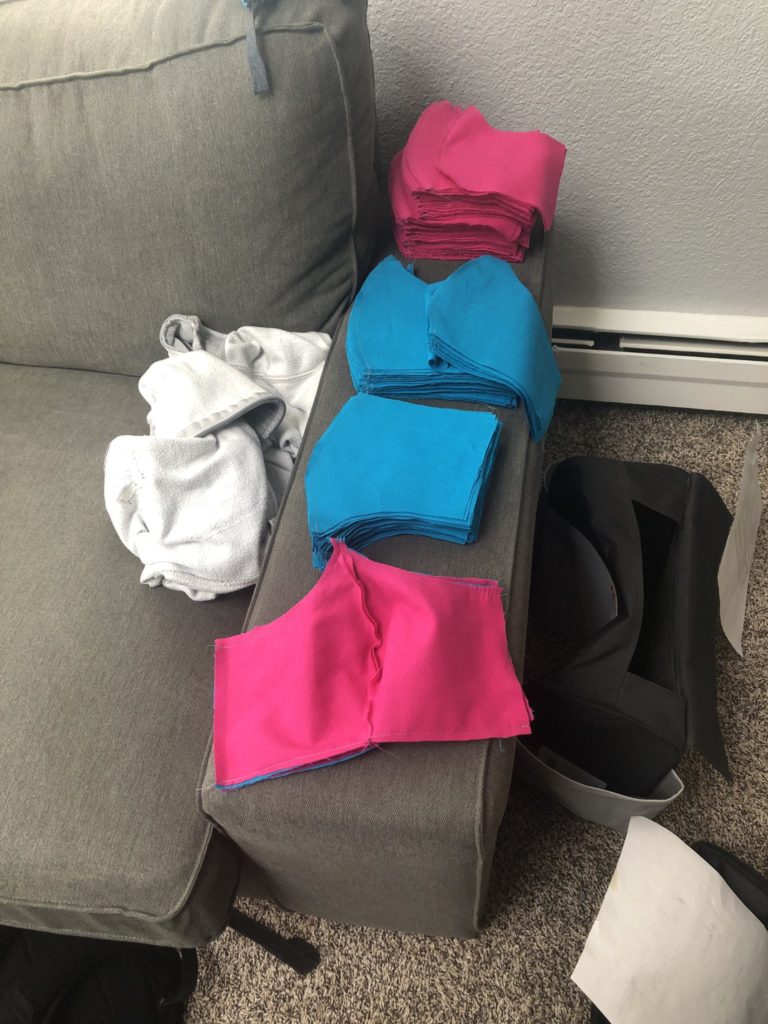
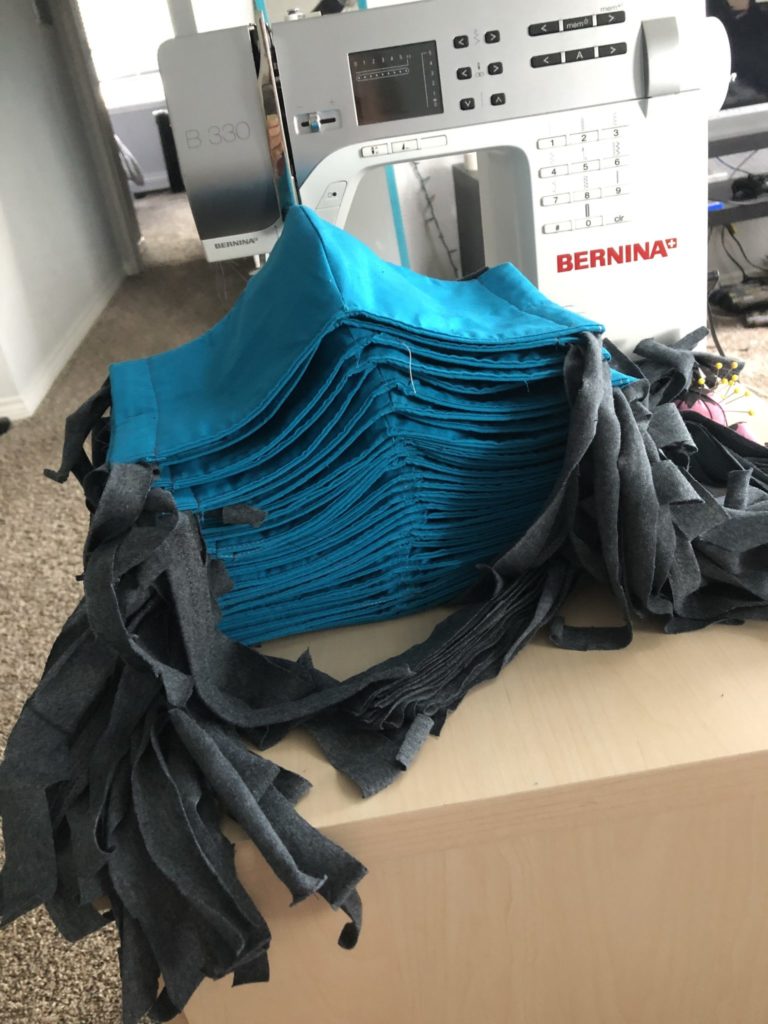
Masks made by by Niqui Mickelson (pictured) and Jess Kroupa.
Students express the importance of community
Like many people right now, senior theatre major Niqui Mickelson feels called to give back to her community.
“These masks seem so small, but we’re in a bit of a scary time where some of the smallest things are what we need the most,” she said. “It also adds this beautiful unity to our community. Everyone is trying to stay socially distant, but these masks are giving us the opportunity to show people that we may be isolated, but we still care about our fellow human. I really just love being a novice seamstress and still be able to help.”
While making masks has been a lot of work for senior theatre major Jessica Kroupa, it’s helped her to stay busy while binging on Netflix during the quarantine.
“It’s been really nice to know CSU has found a way for me to continue having a job even with cancelled shows, and that our work is benefitting something that our community really needs right now!” she said.
Thankful
Smith wants CSU theatre to know that their efforts are protecting the public, and it is time well spent. He looks forward to saying thank you to Kulovany and her team.
“When this shutdown is over, we’d love to come thank the students in person!” he said.
CSU Theatre
CSU Theatre Staff
Elise Kulovany, Costume Shop Manager
Becky Evans, Cutter/Draper
Heidi Larson, Scenic Charge Artist
Cooper Adams, Theatrical Lighting Technician
Steven Workman, Production Manager
Prop Shop Work-study Students with Costume Shop practicums
Victoria Cline, junior
Frances Fedele, junior
Xander Kobrin, sophomore
Costume Shop Work-study Students
Jessica Kroupa, senior
Kalie Lanik, senior
Niqui Mickelson, senior
Laura Myers, senior
Ryan Wilke-Braun, senior